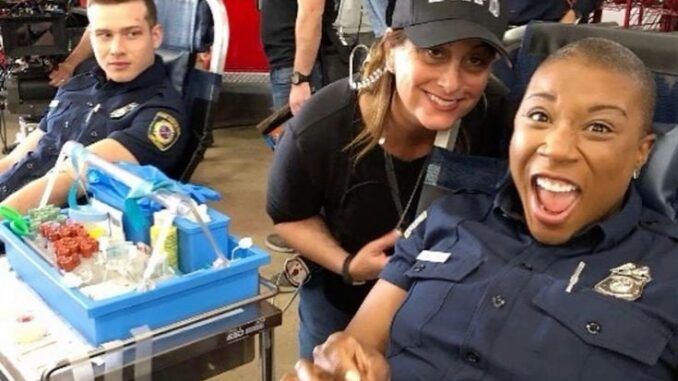
Reading a book that resonates with you as a child is one thing, and starring in a film adaptation of that book is another. Brianne Tju has done just that. What book is it? Scott Westerfeld’s Uglies, which came out nearly two decades ago. The dystopian young adult novel is finally being adapted into a live-action film by Netflix. Brianne Tju did her younger self proud by stepping into the role of Shay. In an interview with Lifestyle Asia, the actress revealed what it was like to play the character she read about as a child. She also shared more about the relevance of the novel’s themes to today’s society, as well as the importance of telling diverse stories.
Brianne Tju is no stranger to the spotlight. The American actress has been acting since she was a child, appearing in the Disney Channel series Cory in the House. She went on to star in other TV shows like Grey’s Anatomy and 9-1-1. Her big break came with a recurring role as Riley Marra on Scream. She eventually landed a few horror/thriller projects. Among them were Hulu’s Light as a Feather and I Know What You Did Last Summer, which earned her the title of “Scream Queen.” Moving away from these genres, Tju moved into the post-apocalyptic genre with her role as Shay in Uglies on Netflix. The show is set in a futuristic world where plastic surgery is used to make teenagers “pretty.” Shay is a character Tju can relate to, especially her internal struggles. Perhaps this is due to her own upbringing in the US as the eldest daughter of Chinese parents from Indonesia. “I know what it’s like to want to fit in and be ‘normal’ but also want to accept who you are,” she told us. In many ways, the book’s themes are even more relevant today, in the age of the internet and social media. But there are also messages about autonomy, freedom, and identity. Brianne Tju chats with us to give us more insight into how she got into the role and the story’s deeper themes.
Brianne Tju shares about joining Netflix’s Uglies and her transition for the role What appealed to you about the story when you were younger, and what appeals to you now after starring in the film adaptation?
What appealed to me when I was younger were strong female characters and the desire to grow up, to feel like a part of the world, and to be accepted. As a kid, I remember relating to Tally in her eagerness to grow up and “get on with life.” For her, the surgery was a catalyst for adulthood. As a kid, I remember just wanting to grow up fast so I could be the hero of my own story. But I learned that no amount of surgery can make you more worthy than you are. What appealed to me about the book as an adult was the message of choice and self-determination about what I wanted or didn’t want to do with my body. It inspired me to embrace my uniqueness and flaws and see them as what made me special. Now, I try to be more critical about why I do something. Is it for me? Or is it to please others?
What about the character Shay did you relate to? Do you feel similar or different to her?
I really empathized with Shay’s internal struggle with her surgery. I know what it’s like to want to fit in and be “normal” but also want to accept who you are. The friendship between Tally and Shay inspired Shay to forgo surgery and move on and grow as her true self in The Smoke. I think some of my relationships have inspired me to make similar choices. I don’t think I’m as brave or as cool as Shay, but I’d like to think we’re similar.
What was your approach to portraying her character, especially one from a famous book? How did you create your own interpretation while staying true to the character?
I reread the book, which provided a great foundation. At the end of the day, we wanted Shay to feel inspired and free, but still attainable. I used a lot of my own experiences to play her and empathize with her. This film is about growing up first and foremost, so honoring the universal relatability of the character’s emotional journey was key. McG and I decided to really create a lovable and admirable character in Shay that Tally struggles to hold onto for much of the film. Tally gradually realizes that Shay doesn’t need saving, but by then it’s too late. We wanted Shay’s transformation in the final act to be truly heartbreaking, and I think it did.
What aspects of the book make it relevant today?
This story is relevant today.